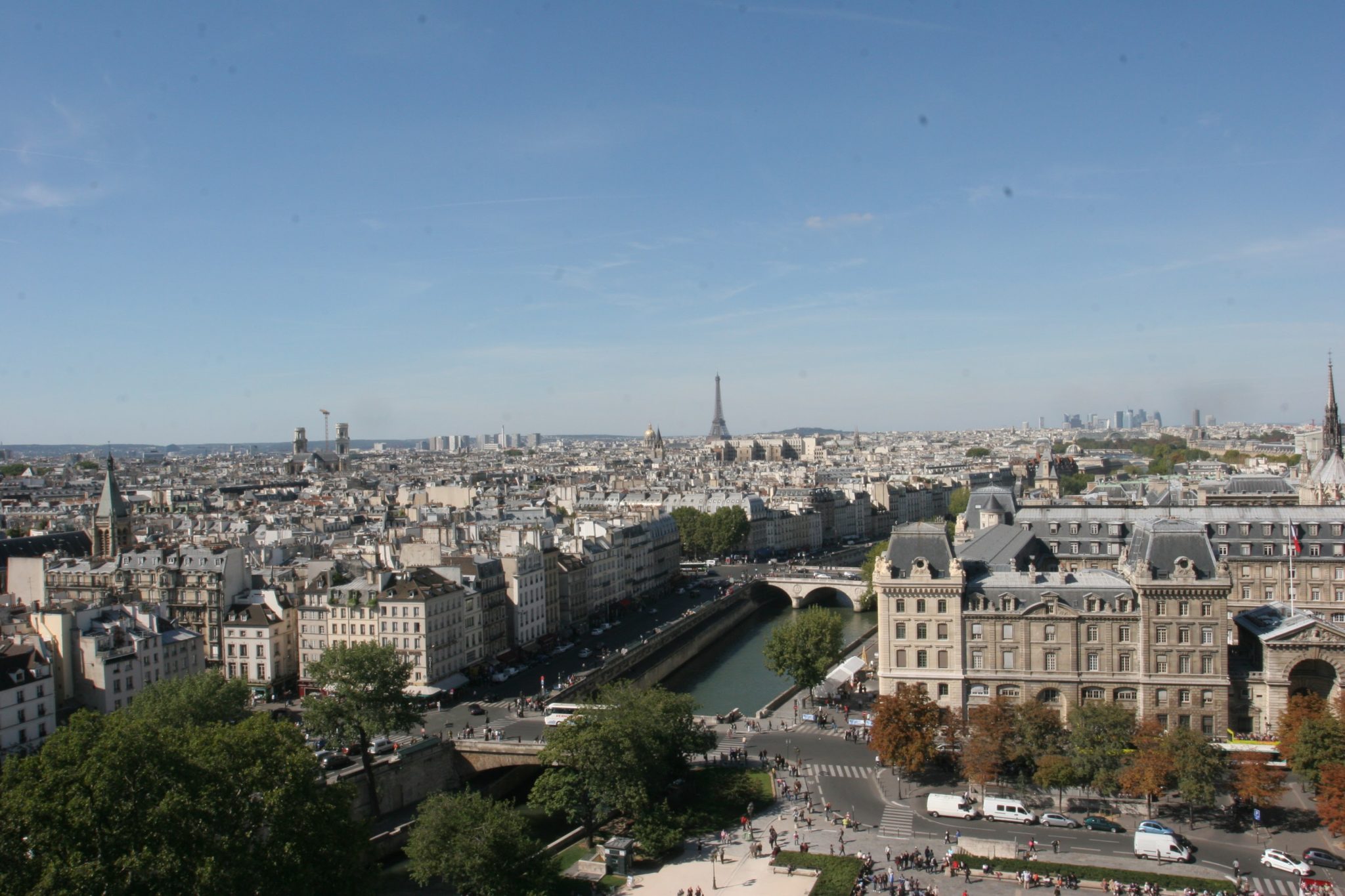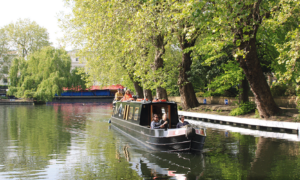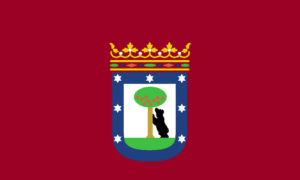(Editor’s Note: In these articles, Molli Sébrier and Gracie Bialecki discuss their study abroad experiences, particularly in the light of later becoming Paris residents. This appeared originally on The American in Paris blog. It’s reposted here with permission.)
American expats Molli Sébrier and Gracie Bialecki both studied in Paris before becoming full-time French residents. They recently came together virtually to share their quite different experiences.


Molli Sébrier: I was never someone who imagined herself in a foreign country. But, when I found myself in the study abroad office of my university in the fall of 2011 and the advisor suggested Paris in January 2012, I said “yes.” When I think back to that gloomy afternoon on my New England campus, I know now that it was a defining moment in my life. If I had never said “yes” to Paris almost ten years ago, I most likely would have never gotten my master’s degree, learned a foreign language, or said “yes” to my French husband.
I’m getting ahead of myself. I needed a passport (I never had the need for one before), to apply for financial aid, tell my parents, quit my job … all of these seemingly onerous tasks stood in the way of me and my great escape. But, none of that mattered because I was going to Paris. The more I thought about it, the more I realized how much I did want to live abroad. I had just never let myself have those feelings because it seemed impossible. A lesson in never saying never, for sure.
Gracie, did you always know that you wanted to study abroad, or was it a spur-of-the-moment decision like it was for me? What prompted you to spend a semester in Paris?
Great expectations
Gracie Bialecki: I’m pretty much on the exact opposite end of the study abroad spectrum. At age 12, I decisively chose to study French over Spanish, and I fell even more in love with the country when I visited with my family the following year. On that trip, I also met our French family friends who continue to play an integral part of my life and my expat experience.
Clearly, I had the France bug from a young age, and I continued to study it in college with the goal of spending a semester abroad. There were programs in other French cities and countries, but I was all eyes on Paris. To me, it was incredible to have an opportunity to live in the city for an entire semester, and it was something I’d wanted to do for as long as I could remember.
I’m interested in what you imagined Paris would be like before you left – did you have a clear idea of what you were getting into? Any specific hopes and dreams for your first extended stay outside of the US?
MS: I honestly went into the entire experience blindly, with next to zero expectations. The week before I was set to leave, it suddenly hit me that I was actually going to be living in a foreign country for the next six months, and I got really emotional about leaving friends and family behind. I was so caught up in spending time with everyone, that I didn’t really have time to imagine what I was getting myself into!
I definitely did have certain expectations once I did arrive in Europe – I remember getting to my host family’s apartment with my roommate and we were both really disappointed. We looked out of our window, looked at each other, and said, “We can’t even see the Eiffel Tower from here!” when in reality, we were in the beautiful and quintessentially Parisian neighborhood Saint-Germain-des-Prés.
But, looking back, I’m happy that I didn’t spend much time imagining what Paris was going to be like (other than assuming that you could see the Eiffel Tower from every window in the city). Going into it so blindly meant that I was shocked and awed by nearly everything I saw. One thing that I loved about Paris at the time (and still do!) is the fact that everything is just so old. I’m from New England, the oldest part of the United States, but nothing can compare to the thousand-year-old buildings that are around every corner here.
I imagine that you must have had certain expectations about France since you had been dreaming about coming here for years. Did Paris live up to your expectations? Did anything surprise you about living abroad?
Location, location, location
GB: My study abroad experience was quite stereotypical in that it had a mixture of joyful-loving-Paris highs as well as frustrated-at-foreign-living-lows. Unlike you, my host family lived in Boulogne which is in the west of Paris at the end of the Line 9. While the subway goes there, it’s not in an arrondissement and wouldn’t be considered part of Paris proper.
So while you could walk many places from Saint-Germain-des-Prés, I was at least a 40-minute subway ride from everything I wanted to do. On top of that, the métro closes around midnight on the weekdays at 1 a.m. on the weekends. This meant I was constantly watching the clock and making sure I could get home. Keep in mind that I studied abroad before Uber, electric scooters, and all the transportation options we have today. And at that time, there was no way I could’ve afforded a taxi from the center of Paris out to Boulogne (laughs).
Transportation struggles aside, I did the most I could to immerse myself in French language and culture. I spoke exclusively French with my host family and prioritized spending time with my French friends. My main goal was to be as “French” as possible. Many of the other students in my program spent all their time together, which meant they were speaking English and exploring the city in a way that felt overly touristy. As I mentioned in my other article on studying abroad, I only took one class at a French university, so I struggled a bit with being in a program which was teaching us about the city while also not necessarily integrating us into it.
On a personal note, I was also in a relationship with my boyfriend who lived in Los Angeles which is nine time zones away from France. It was hard to be that far apart and I spent a lot of time and energy missing him even though I was only gone for three months. It’s interesting that your program was twice as long as mine. How did you feel after six months in Paris? At the end of your stay, did you consider yourself comfortably “Parisian”?
MS: At the end of my program a group of friends and I actually ended up moving to the South of France because we weren’t ready to go back to America and reality. I wasn’t ready to leave my newfound French life behind just yet!
But, funnily enough, I was a lot like the other students in your study abroad program – I stuck with the group and didn’t have any French friends until I moved to the south. I think a lot of it had to do with the fact that I was so comfortable in our little “English bubble,” and breaking away from that felt scary! I barely spoke French and had a hard enough time trying to communicate with my “host mom” that just the thought of trying to make friends in French made me break out into a cold sweat.
So, in that way, I don’t think that I felt Parisian after my 6-month study abroad program, no. I feel much more French and Parisian now after my seven-plus years here, mostly because I had a completely different mindset the second time I moved to France. But, that’s another story for another post.
You mentioned that your host family was located outside the city. Were you disappointed when you learned that or excited that you were going to be with a “real” French family in a “real” Parisian suburb? I already told you that I was pretty terrified of my host mom, what was your relationship with your host family like?
Relating to French ‘families’
GB: I had mixed feelings about living in Boulogne rather than Paris “proper.” Part of me was quite disappointed to be that far outside of the city, especially since other students on the program were located centrally, like you in Saint-Germain-des-Près. To anyone familiar with Paris, it seems cruel and unfair.
At the same time, my other French “family,” who I met through my father when I was 13, also live in Boulogne. So in a crazy coincidence, I ended up having both my official and my unofficial French parents in the same neighborhood. That said, being so far outside of Paris did significantly change my experience, and I think it’d be hard for anyone to get the most out of the city while navigating métro closings and public transportation schedules, especially in the time before smartphones.
My relationship with my host family was fairly cordial — they were considerate and certainly took good care of me, though they didn’t seem particularly interested in learning about my life or my American perspective. They’d been hosting students for many years, and it felt more like a way to fill an empty room in their house than to have a cultural exchange. In retrospect, this is totally reasonable, though going into the program, I expected to be greeted with slightly more open arms. Then again, that’s also a cultural difference.
My family had two sons who lived at home, and though they weren’t around much, they always chatted with me. Everyone spoke French which gave me lots of practice — I don’t remember ever once reverting to English. In that regard, being immersed with a family who doesn’t speak much English can be a blessing. Since the easy way to improve at a language is to slog through the daily communication in order to be understood. Overall, I’m grateful for my experience and the way my French improved in those three short months.
Do you have any final thoughts on your time studying abroad in France? Any takeaways that stick out to you as you look back?
Takeaways
MS: The major takeaway for me is how important it is for anyone to leave their home country and live abroad. I mentioned that it was never something that I thought I would do, I wasn’t encouraged to do it by my family, or by anyone around me, really. If it wasn’t for that one persistent study abroad advisor, I honestly don’t know where I would be today!
That said, studying abroad was totally life-changing for me. That’s not to say that I think everyone who studies abroad should eventually leave their home country for good, but it is an eye-opening experience. Even going from one Western country to another, there are immense differences between France and the United States, and it was really important for me to see that with my own eyes. I think this is especially true for Americans. We tend to grow up in a bubble, quite separate from the rest of the world — both in terms of geography and in terms of mindset. It can be helpful to realize that there are other ways of life out there.
So, if you’re waiting for a sign — this is it! We encourage everyone reading this post to visit the study abroad offices at their university and to think seriously about their options. You never know where a semester or two in a foreign country could lead you.
About the authors:
• Gracie Bialecki is a writer and literary coach who lives in Paris, France. She is the co-founder of the storytelling series Thirst, a poetry editor at Paris Lit Up, and the author of the novel Purple Gold (ANTIBOOKCLUB).
• Molli Sébrier has lived in Paris since 2014 when she decided to leave her American life behind and pursue her dream of becoming a writer. Since living abroad, Molli has earned her master’s degree in English Studies with a concentration in literature and is now working towards making that becoming a writer thing happen.
If you’re interested in following your own dreams of moving to France, she also offers consulting.
You can follow her journey on Instagram @mollim, and if you like to read, Molli runs a female-focused book review website called The Mistress of Books. You can also follow her website on Instagram @themistressofbooks.
The feature photo was taken from the bell towers of Notre Dame, when such views were available to anyone willing to stand in line.














